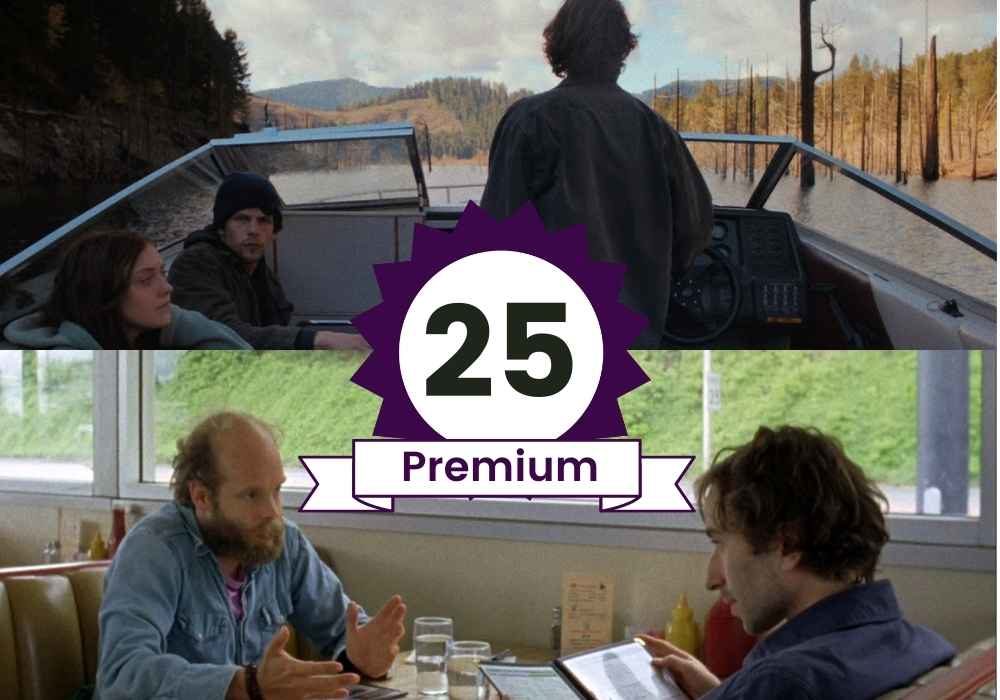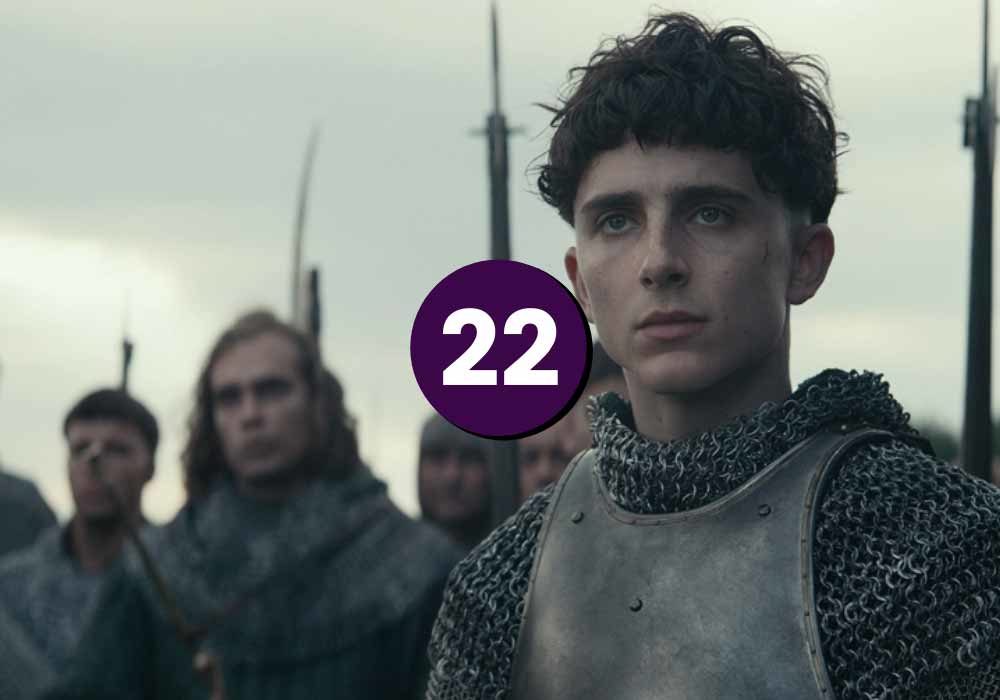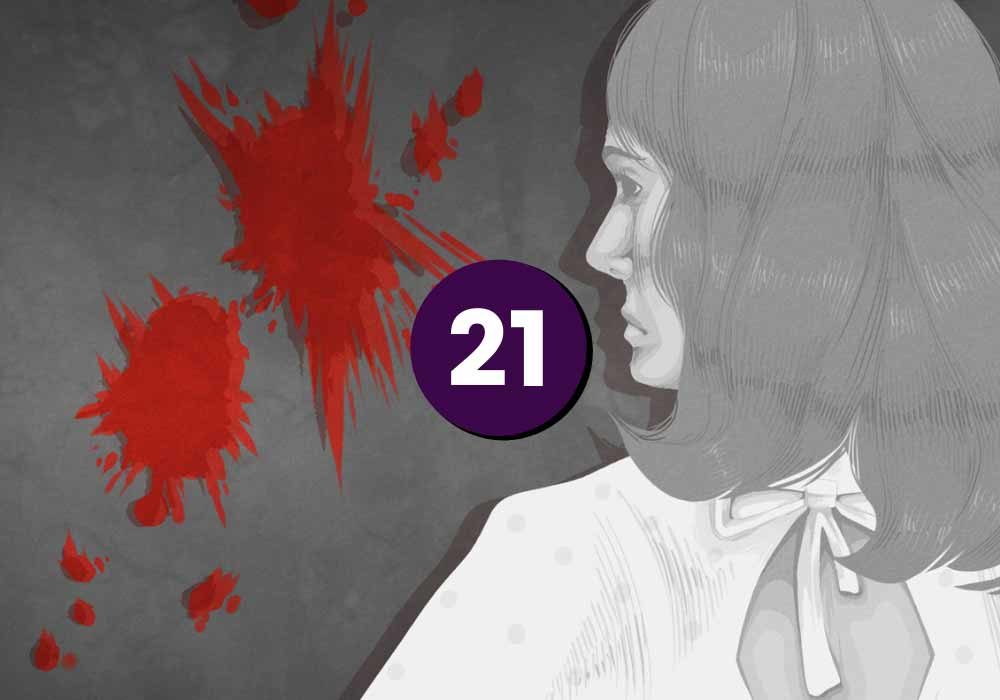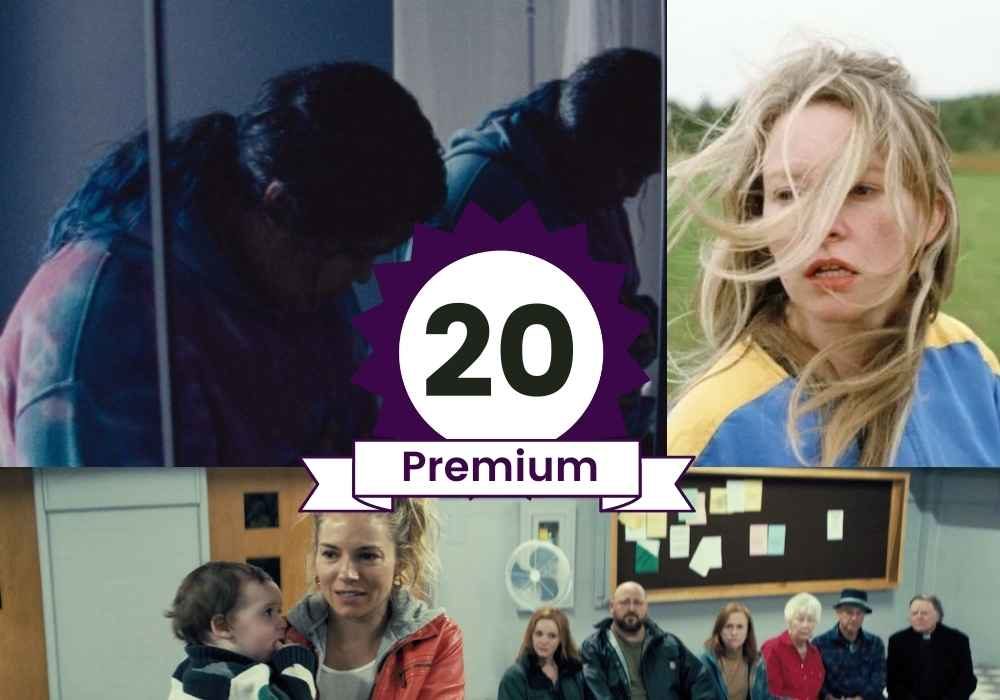Editor-in-Chief Alex Heeney, Executive Editor Orla Smith, and Associate Editor Brett Pardy discuss site favourite Kelly Reichardt’s two (pre-First Cow) films about men
Seventh Row Podcasts
We run two podcasts at Seventh Row:
- Our flagship Seventh Row podcast, featuring in-depth discussions on individual films that we've done Special Issues on or that we think deserve special attention. Subscribe on iTunes, SoundCloud, Stitcher, or TuneIn.
- Our 21st Folio podcast, a podcast about modern Shakespeare productions of stage and screen. Subscribe on iTunes, SoundCloud, Stitcher, or TuneIn.
Ep. 24: Marriage Story
Alex Heeney, Orla Smith, Mary Angela Rowe, and Brett Pardy discuss one of 2019’s most controversial films: Noah Baumbach’s Marriage Story.
Ep. 23: Find Me and adapting André Aciman for the screen
Editor-in-Chief Alex Heeney and Associate Editor Orla Smith return to the world of Call Me By Your Name with a discussion of André Aciman’s sequel novel, Find Me.
Ep. 22: The King attempts to adapt Shakespeare’s Henry V
This is a cross-over episode with our Shakespeare podcast, 21st Folio, which dives deep into Netflix’s The King, a sort of adaptation of Shakespeare’s Henry IV Part 1 & II and Henry V.
Ep. 21: Feminist horror
Episode 21 celebrates our new ebook, Beyond empowertainment: Feminist horror and the struggle for female agency. In addition to discussing the films featured in the book, Editor-in-Chief Alex Heeney, Executive Editor Orla Smith, and Editor at Large Mary Angela Rowe talk about what feminist horror is, the strengths of the horror genre, and the book’s origins.
Ep. 20: Canadian Cinema shines at TIFF 2019
TIFF 2019 was another strong year for Canadian cinema. On this episode of the podcast, we discuss 19 Canadian films, ranging from small character studies to a re-imaged Greek tragedy to an anti-colonialist zombie epic.





